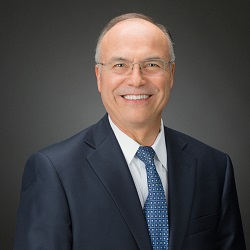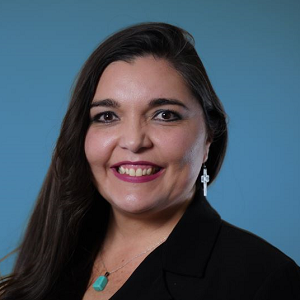Top-Level Takeaways
- Authentic leaders are deeply aware of their values and beliefs, ensuring their actions consistently reflect these principles.
- They prioritize openness and honesty, building trust through clear and genuine communication.
- These leaders cultivate strong relationships, valuing empathy and connection with their teams.
Authentic leadership is an increasingly popular management style that favors people and ethics over profit and share price. Authentic leaders bring their “real” self to work every day to build genuine connections with peers, subordinates, clients, communities, and more.
Authenticity requires leaders to embrace self-awareness, transparency, and integrity. That can be easier said than done. Here, seven credit union leaders share their own views on authentic leadership.
Out On A Limb
Tom Gryp, a University of Notre Dame alum, has been president and CEO of Notre Dame Federal Credit Union ($1.1B, Notre Dame, IN) for 14 years.
What does being an authentic leader mean to you?

TG: Being an authentic leader involves clearly and consistently communicating the vision and direction of the organization to all company stakeholders. It means working closely with your team and providing honest feedback regarding how the organization’s strategies are being executed.
Authentic leadership requires the courage to think beyond the moment and anticipate future challenges and opportunities that might not exist in the present. This demands the leader accept they might not predict accurately, resulting in a misadventure or two. Nevertheless, the leader must be willing to face the possibility of these negative outcomes to be in proper position when the unexpected becomes the new reality.
How has authentic leadership played a role in driving positive change or achieving a desired result at your credit union?
TG: I went to our board several years ago with the proposition that our staff should be compensated beyond the market wage. As a credit union with a fundamental desire to live the tenants of Catholic social teaching, we needed to move to a philosophy of compensation that provided our least-paid workers not just a living wage but an entire package of benefits that could make a difference in their lives.
This would include expanded PTO and medical benefits where the credit union would carry a greater burden of the costs. Going out on such a financial limb was risky but it was the right thing to do and, fortunately, our board embraced it unanimously. The culture dramatically changed in an instant and we haven’t been the same organization since.
Honesty And Vulnerability

Brandon Michaels joined OneAZ Credit Union ($3.4B, Phoenix, AZ) as its president and CEO in May 2023 after 20 years in credit union executive leadership, including in the chief executive seat at two other cooperatives.
What does being an authentic leader mean to you?
BM: Authentic leadership is about being genuine, transparent, and true to one’s values and beliefs. It’s about leading with integrity and a deep sense of purpose. It’s being consistently true to my core values and beliefs, regardless of the circumstances. It’s not just about what I do, but how I do it.
The most effective way I can inspire authenticity is by modeling it. Whether it’s admitting a mistake or making a tough decision that aligns with our core values, I try to lead by example. This demonstrates to my team that authenticity is not just expected but lived out in our daily operations.
How has authentic leadership played a role in driving positive change or achieving a desired result at your credit union?
BM: One example at OneAZ is our current shift to an agile methodology operating model. It’s a daunting prospect for team members because it represents a fundamental change in daily operations, moving away from traditional hierarchies and processes to more dynamic, team-based approaches.
For an organization that has existed for 72 years under a previous operating model, this is scary. Since we’re just beginning, many team members are still nervous about the implications — worried about new skills they need to develop, the change in work routines, and the overall impact on their job security. Recognizing these fears, I focus on leading the change with honesty and vulnerability. This is new territory for me as well, and while the benefits of agile are clear — increased flexibility, improved response times, and enhanced team member engagement — I’m learning alongside them. This admission is crucial in humanizing the process and showing it’s OK to be uncertain. It’s part of the growth process.
Authenticity For The Win

Jenny Vipperman became president and CEO of ORNL Federal Credit Union ($3.6B, Oak Ridge, TN) last October after more than 15 years as a senior lending manager and executive at three other large cooperatives.
What does being an authentic leader mean to you?
JV: Transparency, vulnerability, and accountability are integral to being an authentic leader, which is not easy or natural. It has to be an intentional practice.
I’ve seen this confused with false humility, which is the opposite of authenticity. I find it far more refreshing to see leaders who are confident but also aware that at any given moment, or on any given topic, they could be wrong and therefore include others in their decision-making and are willing to change their mind when presented with new information or alternate points of view.
What this looks like in my leadership is starting with the “why” and connecting strategy and decisions back to that. I encourage open communication in my organization, from hosting town halls in which employees can ask questions anonymously and get real-time answers, to considering concerns that come through employee surveys, to visiting branch and department employees for in-person feedback.
How has authentic leadership played a role in driving positive change or achieving a desired result at your credit union?
JV: When I began my job search to become a CEO, a good friend gave me some of the best career advice I’ve ever received. Instead of trying to figure out what the board is looking for and provide that, he instead challenged me to be transparent and authentic in my responses. If those responses don’t get me the job, it was the wrong job.
Taking that advice is easy in theory but much harder in practice because it means choosing to potentially be passed over for a job you want in favor of a hypothetical future job you’re banking on being the right fit. The result, as you can guess, put me where I am today. I’m so glad because I have the best job in the world, and I’m exactly where I’m supposed to be.
The Importance Of Face Time

Rudy Pereira has been president and CEO of Premier America Credit Union ($3.5B, Chatsworth, CA) for the past seven years and has nearly 35 years of credit union leadership experience.
What does being an authentic leader mean to you?
RP: To be an authentic leader means you need to model transparency. Having an open-door policy is certainly key but it needs to be more than that. At Premier America, we conduct a monthly anonymous town hall meeting. The week before the meeting we ask for anonymous questions. The senior team and I come on camera and answer each question as written. We also take questions during the town hall.
The town halls have driven positive change. I invite board members because I want to give them the same transparency, and it gives them insight into our culture and how we can continually strive to be an employer of choice.
How has authentic leadership played a role in driving positive change or achieving a desired result at your credit union?
RP: I make a point of meeting with every department and branch annually. This gives me the opportunity in a smaller environment to continue answering any questions, and it gives me the opportunity to personally thank them for their specific contributions. I want them to know I learn from them, and their feedback helps us improve service to them and our members. These meetings can last from one to two hours.
No One Has All The Answers

Tonita Webb became president and CEO of Verity Credit Union ($833.4M, Seattle, WA) in early 2021 after nearly 16 years in senior executive roles at another large Seattle cooperative.
What does being an authentic leader mean to you?
TW: Being an authentic leader means understanding I’m human and being transparent about that. In my role, I will make mistakes. With these mistakes, I continuously explore how I will pivot, what I have learned, and how I can demonstrate to my organization that this is a safe environment to make mistakes or have the wrong idea. Although it seems daunting, it’s easy to pivot and move forward, learning what you need to learn.
I strive to embody being an authentic leader each day by starting with intentionality. When I wake up every morning, I think about what my day is going to look like and how I’m going to approach it. I remind myself that I’m supposed to be here, and I can do this no matter how challenging the task or situation. I also think about who can help me and provide the necessary support. I center my understanding that it’s not required of me to have all the answers because I have the right mindset and a team to help me.
How has authentic leadership played a role in driving positive change or achieving a desired result at your credit union?
TW: Authentic leadership has played a huge role in driving positive change at Verity. As a BIPOC woman CEO, I made a conscious choice to show up as my authentic self in an environment where women are often pressured to show up similarly to their male counterparts. This approach yielded a shift in the demographic of our membership, we changed how we were doing some things and stopped others altogether. We began to grow in a new, organic way that led to us truly making an impact and serving communities otherwise underserved.
Verity celebrated surpassing 40,000 members for the first time, has emphasized DEIB [diversity, equity, inclusion, and belonging] as a top-down strategy for the entire organization, invested in training and development, prioritized access and expanded mental health and healthcare benefits, and established a new organization structure to put more resources in place that impact member ease of access to funds.
Parallels With Childhood

Diane Sandoval-Griego is chief of financial empowerment at Guadalupe Credit Union ($261.7M, Santa Fe, NM) and has been with the New Mexico cooperative for 18 years.
What does being an authentic leader mean to you?
DSG: Authentic leadership stems from a genuine interest in the wellbeing of others. Leaders who strive to understand those they lead become more connected and committed to their teams.I embody this principle because my work revolves around building relationships and fostering connections every day. I’m dedicated to seeking new ways to create positive change. I invest my time and passion in the communities I serve, driven by a sincere desire to see us all succeed.
How has authentic leadership played a role in driving positive change or achieving a desired result at your credit union?
DS: I believe the greatest achievement in my career was implementing the financial coaching programs at Guadalupe Credit Union. My father was a self-employed business owner who was legally blind. His experiences exposed me to numerous challenges that affected employment and financial wellbeing. When I began my career in the credit union industry, I recognized systematic barriers to accessing credit and financial services, particularly for those with modest means. I saw many parallels between their experiences and my family’s, and the financial coaching program was a convergence of my personal and professional worlds.
Our commitment to financial coaching has crafted an authentic identity for us, establishing us as a trusted resource. It also has opened doors to successful advocacy in New Mexico, the creation of innovative products, and securing much-needed grant funding for our state.
Careers, Not Jobs

Tom Griffiths has been with Atomic Credit Union ($635.9M, Piketon, OH) for 31 years. He has served as president and CEO for the past 22.
What does being an authentic leader mean to you?
Tom Griffiths: Authentic leaders instill in their employees the feeling they have a career, not merely a job. I promote or place employees in positions where they can make the biggest impact for the organization, and I recognize they can do their jobs better than I can.
How has authentic leadership played a role in driving positive change or achieving a desired result at your credit union?
TG: In 2011 I presented the idea of starting a student-run credit union to my board with the caveat the program will not be profitable for as far out as perhaps 15 years if all went well. Today, it is one of the biggest student-run credit union programs in the United States, boasting 74 active schools participating one day per week every week school is in session. Next year, we will be inside 85 schools. We have 36 paid employees overseeing the program with more than 900 student volunteer workers assisting thousands of youth members of Atomic Credit Union.
— Interviews have been edited and condensed.